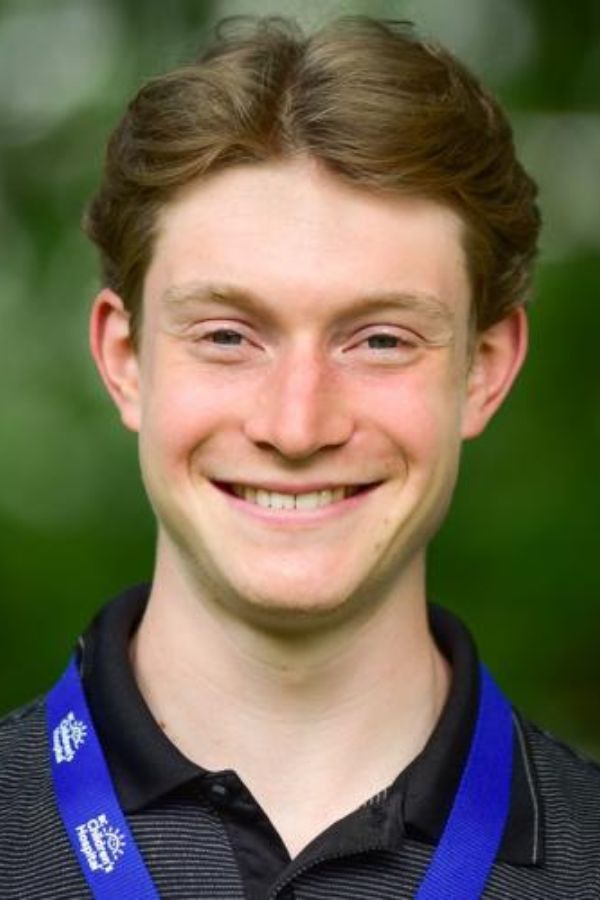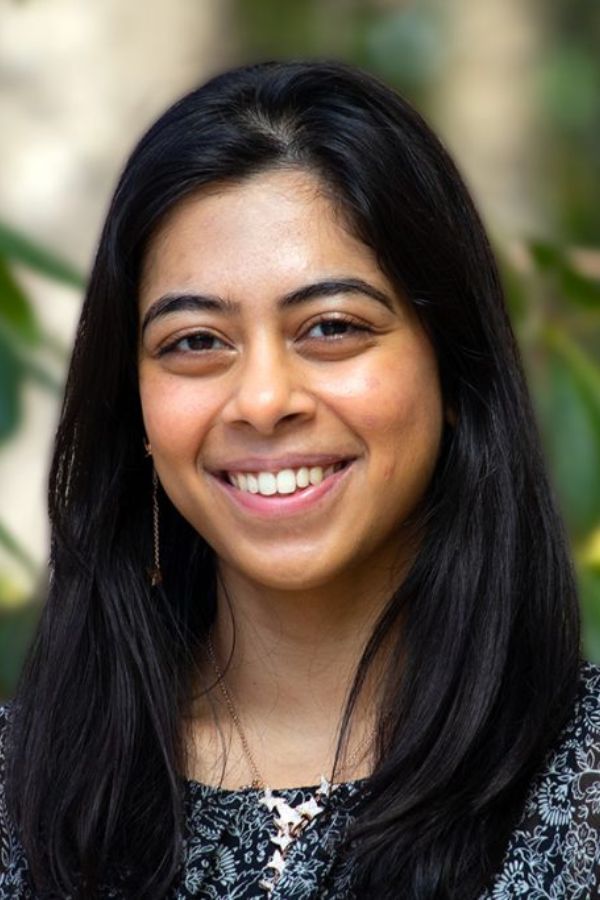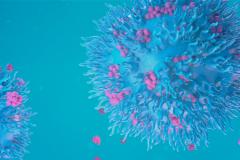BC Children’s Hospital Research Institute (BCCHR) is proud to announce that two of its outstanding research trainees, Torin Halvorson, an MD/PhD student working with the Levings research team, and Hebah Hussaina, a graduate research assistant in the Brussoni Lab, have been awarded the prestigious 2024 Vanier Canada Graduate Scholarship.
Torin Halvorson
From Farm to Immunotherapy

Torin Halvorson’s research focuses on innovative immunotherapy to improve transplant outcomes, but his journey into immunotherapy research began far from the lab. Growing up on a farm, he initially pursued agricultural research at the University of Victoria. However, a third-year immunology course sparked his fascination with the immune system’s complexity and its potential for therapeutic applications. After completing his undergraduate studies, Torin enrolled in medical school for one year at the University of British Columbia (UBC) and explored diverse research areas, then transferred into UBC’s MD/PhD program to complete a PhD in Experimental Medicine.
Engineering Regulatory T Cells to Prevent Transplant Rejection
Torin elected to pursue his PhD research under the supervision of BCCHR investigator Dr. Megan Levings, whose lab focuses on therapeutic initiatives using regulatory T cells. This subset of T cells carries the unique ability to “dampen down” unwanted immune responses, making them promising candidates for therapeutic use. The Levings Lab has previously demonstrated that engineered regulatory T cells can recognize donor tissues during organ transplants, which significantly reduces the risk of rejection. Building on this foundation, Torin’s project aims to enhance the specificity and efficacy of these therapies.
“Currently, we can engineer regulatory T cells to recognize a molecule called MHC class I in transplanted tissues,” Torin explains. “These have shown promising results in preclinical studies and are now in clinical trials. However, there’s another molecule, MHC class II, which is at least as important in driving transplant rejection. Unfortunately, there are no current regulatory T cell therapies that target these molecules.”
Torin’s research project seeks to fill this gap by developing regulatory T cells that specifically target MHC class II molecules, to see if this could lead to more effective transplant therapies. “My hypothesis is that if you’re only targeting MHC class I, you might not be adequately suppressing all branches of the immune system relevant to transplant rejection,” he says.
A Commitment to Excellence
Receiving the Vanier Canada Graduate Scholarship is a dream come true for Torin.
“Since I started in research as an undergraduate, I’ve always hoped to achieve a Vanier — it’s the highest honour for a PhD student,” he shares.
This recognition serves as a powerful motivator for him to advance his research and ultimately translate these therapies into clinical practice. “With this recognition, I feel an obligation to produce outstanding results.”
Hebah Hussaina
Exploring Outdoor Time and Mental Health Among Youth

Hebah Hussaina’s work, conducted in the renowned Outside Play Lab led by Dr. Mariana Brussoni, focuses on the mental health and well-being of youth through outdoor engagement. Hebah’s doctoral research builds on her Master’s thesis, which was a qualitative study on how youth in the Lower Mainland, aged 16-17, use outdoor time during school to support their mental health and well-being. Her current research expands this focus to a broader age range, studying youths aged 13-17.
A Passionate Journey into Mental Health Research
Hebah’s involvement with mental health research began when she enrolled in the UBC co-op program during her undergraduate studies. Working in the emergency department alongside Dr. Quynn Doan, she was inspired by the perspective on mental health from the frontlines. This experience motivated her to explore preventative initiatives in Dr. Brussoni’s lab.
In addition to her work with Dr. Doan, Hebah also worked alongside Dr. Osman Ipsiroglu in 2017. Her years of experience underscore a noticeable gap in youth-focused mental health research — one she is determined to address. “Teenage years are transformative, yet research in this age group is lacking. I hope to use my research to highlight their perspectives and represent their voices,” she says.
Personal Significance of the Vanier Canada Graduate Scholarship
Winning the Vanier scholarship is a profound personal achievement for Hebah. “I can’t say how humbled I am to be part of a network of other professionals and researchers who are so passionate about the kind of work that they do,” she expresses.
This recognition not only validates her efforts but also boosts her confidence.
“Receiving the Vanier scholarship gives me a lot of confidence in my abilities. It motivates me and reinforces my belief that my research skills can make an impact and help people,” says Hebah.
A Strong Bond with BC Children’s Hospital Research Institute
Both Torin and Hebah have cultivated strong ties with BCCHR and UBC over many years. For Torin, the resources and support at BC Children’s have been instrumental in his research journey. “The campus is exceptionally beautiful, and the resources here have made it a fantastic choice,” he notes.
Similarly, Hebah’s connection to BC Children’s and UBC has been a significant factor in her decision to base her future work in British Columbia. “I’m so grateful for BC Children’s over the past several years, for all of the different research teams I’ve worked with, the mentorship, and the skills I’ve been able to develop. It didn’t feel like an option; it was a given that I would stay,” she concludes.




